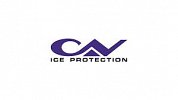Case Studies » CAV Ice Protection

The Challenge
A visit was made to the Celtic Aerospace Ventures (CAV) Ice Protection in Consett, County Durham on the 16th September 2015 to consider compliance in respect of the Dangerous Substances and Explosive Atmospheres Regulations 2002 (DSEAR).
CAV Ice manufactures a freezing point depressant, and the equipment to deploy it on aircraft to prevent freezing of wings and windscreens.
Primarily the DSEAR focus was upon arrangements for handling and storage of highly flammable hexane.
The solution provided
Based upon observations at time of survey, site operations routinely involve the use of hexane, which is a hazardous substance as defined under DSEAR. Even a few litres of a flammable liquid may result in a much larger, explosive vapour cloud. Similarly release of vapour that is heavier than air may build up in drains or linger at floor level and travel some distance along the ground to a source of ignition.
It was found that whilst operations are simple, a flammable atmosphere will exist above the surface of the extraction tanks, within interconnecting piping and above and within crude and recovered solvent tanks.
Decanting fresh solvent into the extraction tanks was another hazardous operation.
DSEAR imposes a requirement to eliminate or reduce risks to safety from fire, explosion or other events arising from the hazardous properties of any dangerous substance used in connection with a work process. The responsible person must carry out a suitable and sufficient assessment of risk to employees for dangerous substances that are or may be present on-site.
In working with CAV Ice, we provided relevant advice to minimise the impact from DSEAR substances. Using recognised standards and guidance to determine the appropriate status and extent of DSEAR hazardous zones; these were clearly shown in the report.
Significant findings from the risk assessment survey were recorded with recommendations to mitigate fire and explosion hazards or support best practice on-site.

